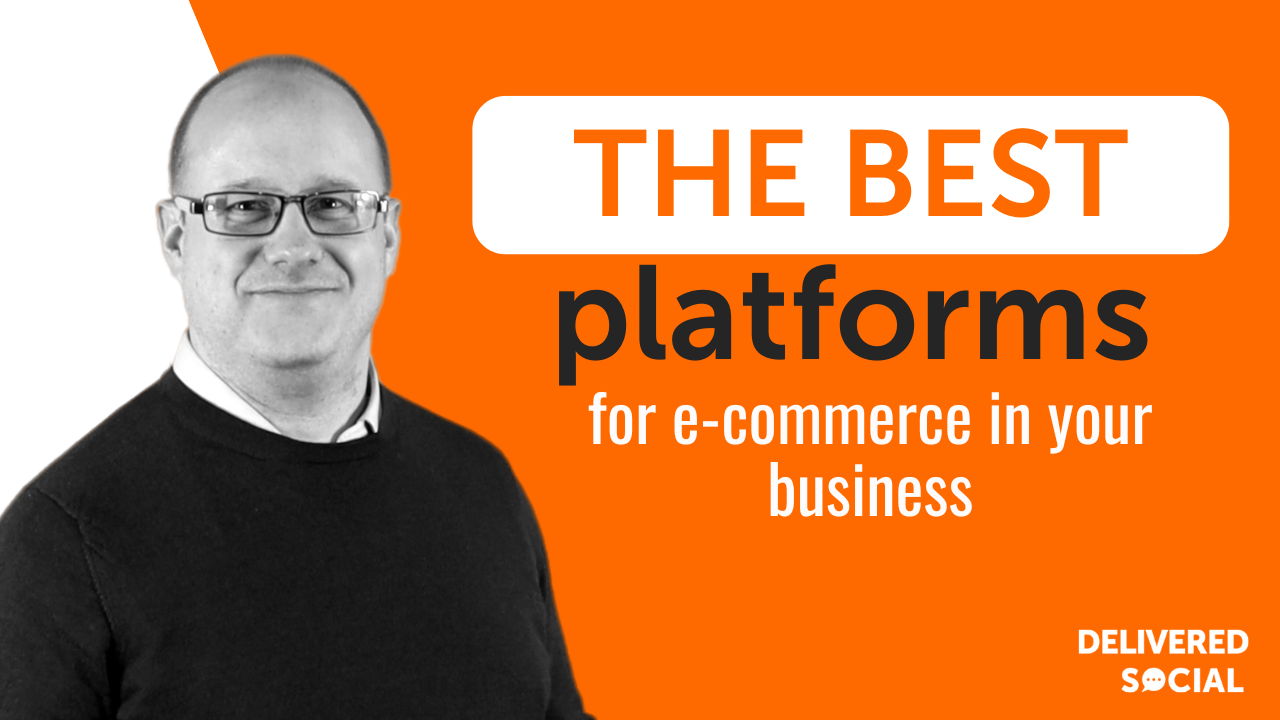
Deciding on the perfect e-commerce website platform is vital to your company’s success. You choose not only the features you require, but also the problems you encounter as your business changes or grows. The flexibility, cost, and scalability of your platform may work or not work you.
Before comparing e-commerce platforms, it is helpful to take control of many of your skills and strategies. For instance, some platforms work well for those who focus on SEO. You do not want to create your e-commerce site and then find that it’s not enhanced for your approach.
Even though some platforms have limitations for users with programming skills, users without this knowledge can benefit from the simplicity of the platforms. Discussed below are the best e-commerce platforms for your business.
1. Shopify
Shopify is very popular. This is an e-commerce website platform chosen by those who sell on social networks or do drop shipping. This platform is scalable, flexible, and simple from SMEs. You similarly do not need any programming skills to use it. Instead, the platform is made of a drag-and-drop interface that you can use to create your website.
Shopify focuses on sales and offers numerous functions for managing customer service quality and sales. Though, Shopify struggles with the biggest stores. With Shopify Plus you can grow into a large company. However, if you are already a large seller, this might not be the correct choice.
If you have high sales or need to emphasize on SEO through social media marketing, check out Shopify’s new challenger, Big Commerce, which has superior performance.
2. WooCommerce
WooCommerce has dominated the market for a long time. As a straight WordPress plugin, it has lots to offer, mainly for companies that have a website and are entering e-commerce. WooCommerce offers a high degree of adaptability and integrated analysis functions. Like almost all e-commerce platforms, the platform also offers customer service around the clock.
The plugin is free, but you have to host your website and pay a fraction of the cost. If you want an all-in-one package, entrants like Squarespace may make sense for you.
WooCommerce is ideal for companies that require a special platform that recognizes WordPress well and has good programming skills. Though, WooCommerce is a scaling problem and does not allow the search engine to be optimized correctly. There is also no support for social media marketing, which makes Shopify so attractive. If you plan to expand your online business significantly, other options may be more suitable for you.
[code_snippet id=6]
3. Big Commerce
A lot of companies are forced to narrow their choices between Big Commerce and Shopify. Big-commerce cannot only handle the big business that Shopify is struggling with, but can also do better SEO. It has a one-page point of sale experience that can help you transition but lacks the one-click sales that make Shopify so good.
Of course, Big Commerce may or may not work for you, depending on your strategy. If you select Big Commerce, you can presume high customizability (in case you have programming skills) and constant client support whether you are a B2C or wholesale e-commerce business. Though, you can similarly expect a higher price for the many features that platforms include in the basic plans.
4. OpenCart
If the high price for Big Commerce is beyond the question, you can appreciate OpenCart. It’s free to use and open source, though you can capitalize in add-ons that cost anywhere from free to $100. There exist many add-on options, others with features that you have to remunerate for elsewhere.
It also requires in-depth programming skills, not only because it is easy to configure, but also because its support is not as strong as that of other platforms. In case something is erroneous, you may have to tinker with your website while OpenCart is working on getting in touch with you.
Nevertheless, OpenCart supports SEO, always responds to mobile devices and can be a good option for those who are familiar with technology and want to make savings on the platform.
5. Squarespace
It is easy to understand why small businesses with little programming knowledge tend to Squarespace. This platform offers a great design with an easy drag and drop interface built on several attractive templates. It is visually attractive and therefore popular with designers, from interior designers to photographers.
Squarespace also attracts small business proprietors – probably because they don’t have programmers to personalize the e-commerce websites. However, Squarespace is flexible and permits you to offer an unlimited number of products on the site. Squarespace, alternatively, may not be suitable for you if your company does e-commerce or has a large volume of sales. There are not many CRM or SEO functions.
In conclusion, making the right decision when choosing e-commerce platforms is essential. It plays a very big role in the success of your business.
Author: Ian Carroll, Director of Digital Funnel who are a digital marketing agency. They specialise in helping small and medium size businesses with lead generation and driving sales.
Interested In Working Together?
Introducing Delivered Social. We’re The Most-Rated Digital Agency In Surrey & Hampshire – We’ve Got To Be Doing Something Right.
Delivered Social is a digital marketing agency with one mission—to help businesses grow. We’re famous in Guildford and Portsmouth for our social clinics. We believe in free advice. We build lasting relationships because our team prides itself on being helpful, which our clients appreciate.
If you are looking for a new website or an agency to manage your social media presence, we can help.
If you need something slightly different, here's a super handy list of all our services, or you can always email us.


























